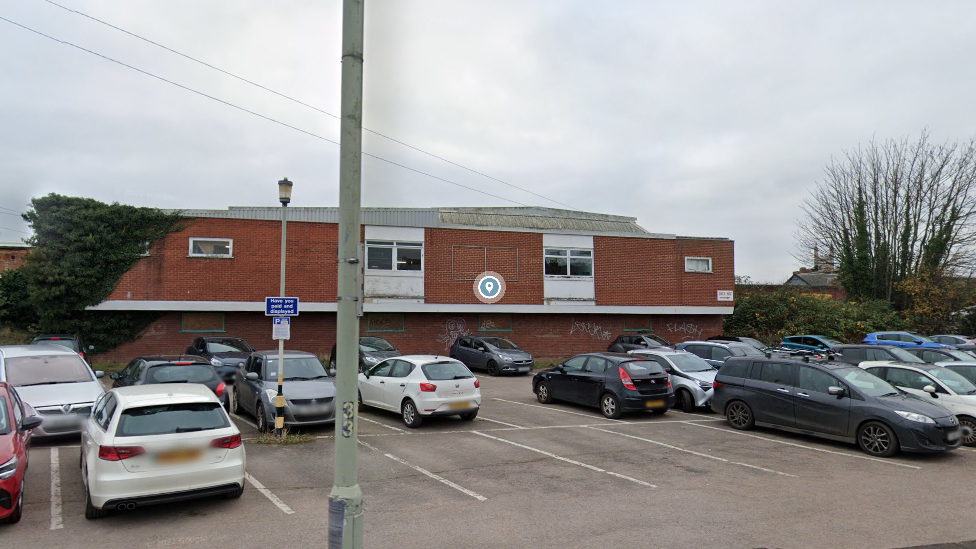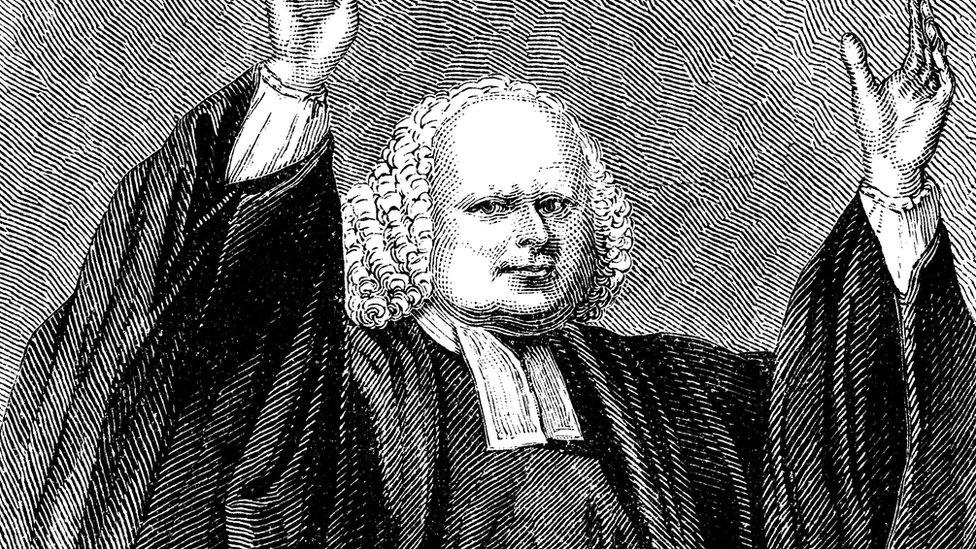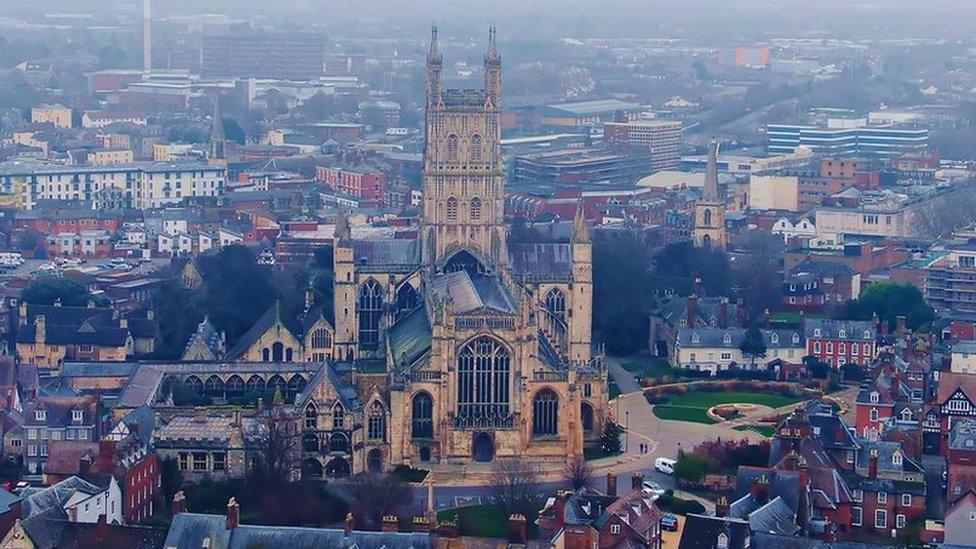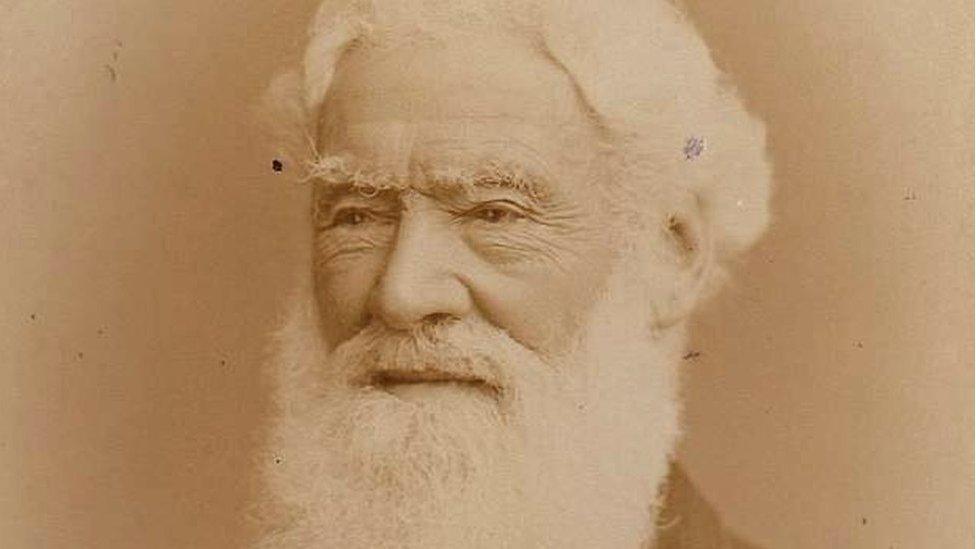Gloucester streets named after slave owner to be reviewed
- Published

The George Whitefield Centre houses a foodbank in Gloucester
Streets in Gloucester could have their names changed due to historic links to the transatlantic slave trade.
Gloucester City Council undertook a review of all monuments, statues and plaques in the city which had a connection with slavery.
A report was completed and a series of recommendations were approved by civic chiefs last year.
The report includes "exploring the possibility" of changing the names of streets linked to George Whitefield.

George Whitefield owned a plantation and campaigned in favour of slavery
George Whitefield moved from Gloucester to the state of Georgia, in the United States, in the 18th Century.
The evangelist preacher became a plantation owner, slaveholder and campaigner to make slavery lawful.
In Gloucester, his memory is honoured with buildings named after him, including the George Whitefield Centre, home of Gloucester Foodbank, in Great Western Road.
The owner of Baker's Quay has said that they will be slowly removing the name from their development as well.
Culture and leisure cabinet member Andy Lewis said: "Do we just erase that history or do we learn from it? If people want to change names on things, that's perfectly acceptable and no problem at all.
"If you don't learn from history you are bound to repeat it. And that is a problem. Pushing it to the side is not the answer."
The council has agreed to consult with residents on the renaming of the two identified Whitefield Street names, according to the Local Democracy Reporting Service, external.
If residents of either of the two streets involved wish to change the name, the actual implementation is likely to take another year.
The council would only change the name of the streets if the majority of residents wished to do so.

Follow BBC West on Facebook, external, Twitter, external and Instagram, external. Send your story ideas to: bristol@bbc.co.uk , external
Related topics
- Published24 January 2022

- Published27 January 2022
